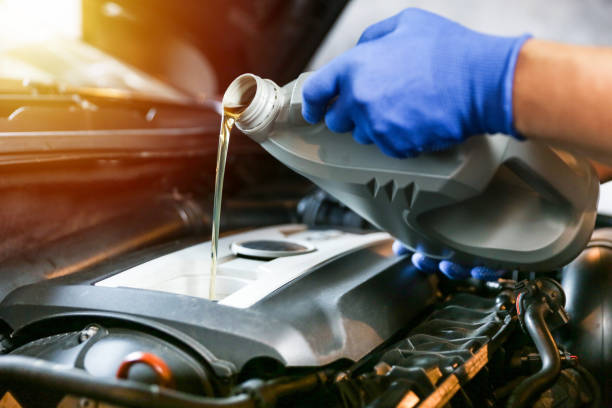
Power steering fluid is an often-overlooked yet critical component of your vehicle’s overall health. This hydraulic fluid helps your car maintain easy and responsive steering, ensuring a smooth ride. This comprehensive guide will shed light on why power steering fluid is so vital and how proper maintenance can improve your driving experience.
Understanding Power Steering
Before diving into the importance of power steering fluid, it’s essential to grasp the fundamentals of power steering itself.
What is Power Steering?
Power steering is a mechanism that helps drivers steer their vehicles by augmenting the steering effort of the steering wheel. It works by using hydraulic or electric actuators to provide directional guidance to the wheels.
How Does Power Steering Work?
In a hydraulic power steering system, when you turn the steering wheel, the power steering pump pressurizes the power steering fluid, which then helps turn the steering gear and, consequently, the vehicle’s wheels. This process reduces the amount of effort needed to steer the vehicle, making it easier to handle, especially at lower speeds.
The Role of Power Steering Fluid
Power steering fluid is the hydraulic medium that enables the power steering system to work.
Transmission of Power
Power steering fluid transmits the mechanical power from the power steering pump to the steering gear. Without the fluid, the hydraulic power steering system wouldn’t function, and steering your vehicle would require a lot more effort.
Lubrication and Protection
Aside from transmitting power, the fluid also lubricates the moving parts within the power steering system, reducing wear and tear. It protects the system from corrosion and helps keep seals and O-rings supple, preventing leaks.
Symptoms of Power Steering Fluid Problems
Knowing the symptoms of power steering fluid problems can help you prevent potential damage to your vehicle’s power steering system.
Hard Steering
One of the most common symptoms of a power steering fluid problem is hard steering. If your vehicle becomes noticeably harder to steer, especially at lower speeds, it might be due to low power steering fluid levels.
Noisy Steering
If you hear a whining or squealing noise when you turn the steering wheel, it could be a sign that your power steering fluid level is low. The sound is typically caused by air getting into the power steering pump or system.
Power Steering Fluid Leaks
If you notice a puddle of fluid under your vehicle, it could indicate a power steering fluid leak. Power steering fluid is typically clear, pink, or red and has a distinctive smell, often similar to burnt marshmallows.
Maintaining Your Power Steering Fluid

To ensure your power steering system works smoothly, it’s crucial to perform regular maintenance on your power steering fluid.
Checking Fluid Levels
Regularly check your power steering fluid levels to ensure there is enough fluid in the system. Refer to your vehicle’s owner’s manual for specific instructions on how to do this for your particular model.
Flushing and Replacing Power Steering Fluid
Over time, power steering fluid can degrade and become contaminated with dirt, moisture, and other debris, which can harm your power steering system. To prevent this, it’s recommended to flush and replace your power steering fluid at intervals specified by your vehicle manufacturer.
Conclusion: The Power of Prevention
Understanding the importance of power steering fluid is key to maintaining your vehicle’s performance and ensuring a smooth and effortless ride. Regular inspections and prompt attention to any signs of trouble can keep your power steering system – and your vehicle – running optimally. After all, as the adage goes, “An ounce of prevention is worth a pound of cure.” Stay safe on the road!








